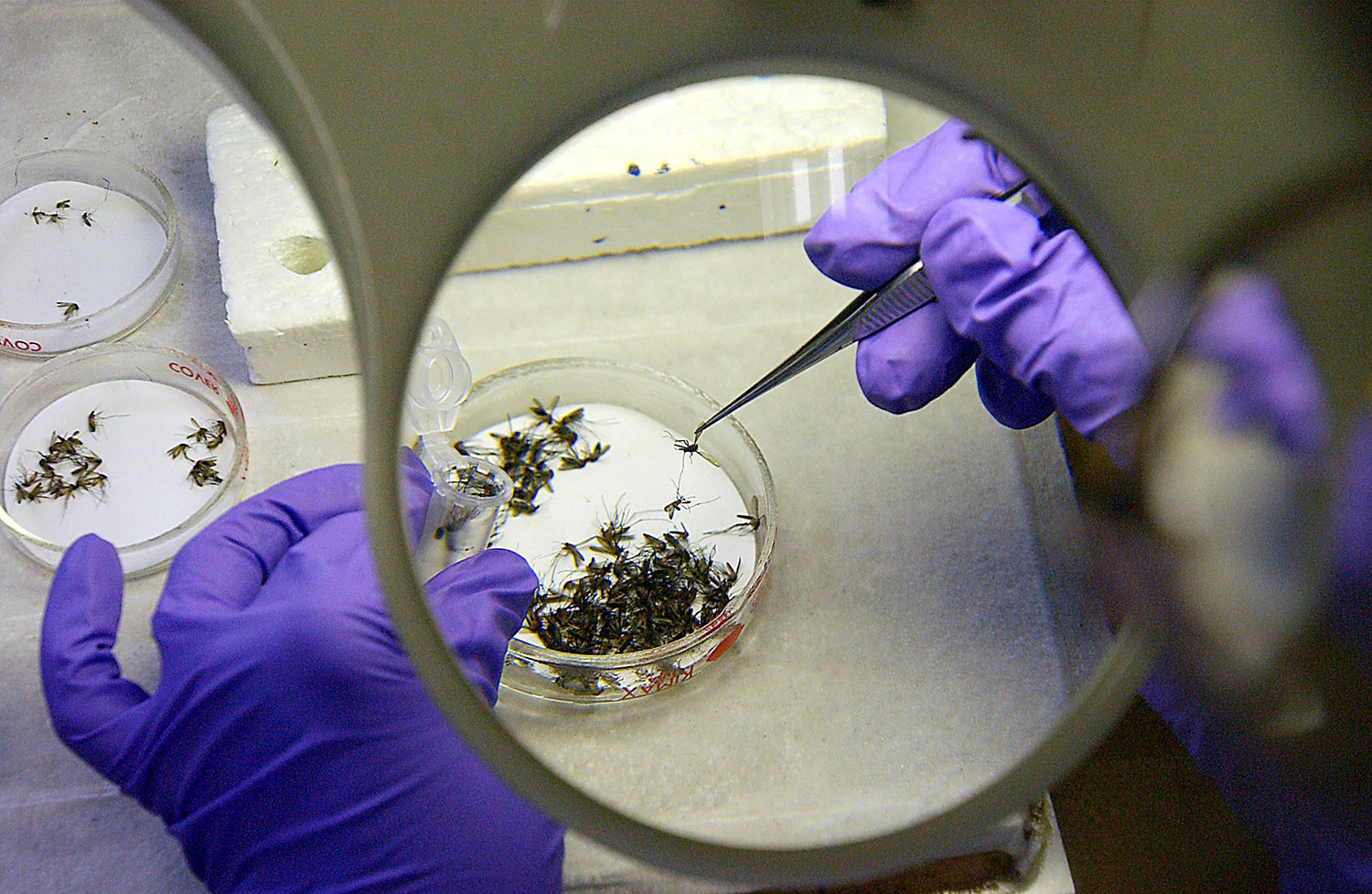By Elaine Bonilla/reporter
This summer has brought hot temperatures and rain — the perfect breeding ground for mosquitoes. The more mosquitoes there are, the more chances for someone to catch West Nile virus.
The Center for Disease Control and Prevention believes the virus has been in the United States since 1999 and has rapidly increased since. Forty percent of reported cases have come out of Texas with Dallas County logging 271 cases and Tarrant County right behind with 203 cases. Many counties have had aerial spraying to help reduce cases by lowering the mosquito population.

MCT/Sharon Gekoski-Kimmel/Philadelphia Inquirer
“The aerial spraying is very controversial, but it has seemed to have helped the counties that have been sprayed by reducing mosquitoes,” said Dr. Woody Kageler, director of allied health.
West Nile virus has the potential to be dangerous to certain people. Those more at risk for this virus are people 50 years of age or older and those with weakened immune systems.
“Many people who have West Nile often think they are sick with the flu,” NE registered nurse Pamela Lynch said.
Many infected people never know they have contracted the virus, and 20 percent of those infected will show mild symptoms such as headache, body aches, skin rash and swollen lymph glands.
“Those who have minor symptoms should see a doctor to make sure they don’t have the virus,” Lynch said.
A severe infection is called West Nile neuroinvasive disease and can last for several weeks, and the effects of the symptoms can be permanent. The disease affects one out of 150 people infected with the virus. The symptoms for this include headache, high fever, neck stiffness, disorientation, tremors, convulsions, muscle weakness and even paralysis.
“Since the virus isn’t contagious, students are not required to tell TCC whether they have the virus,” Kageler said.
West Nile virus has no specific treatment, but intravenous fluids and medication are used to control fever and/or pain. Antibotics are also used to treat bacterial infections.
The Texas Department of State Health Services recommends the public follow the “Four D’s” for defense on the virus: Use DEET mosquito repellents, dress in long sleeves and pants, stay indoors at dusk and dawn and drain standing water.
Kageler doesn’t think students are at a higher risk for West Nile because water is everywhere and the water near campuses is moving water, but students should watch out for stagnant water.

